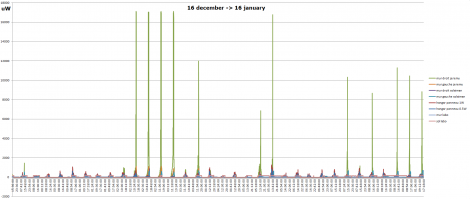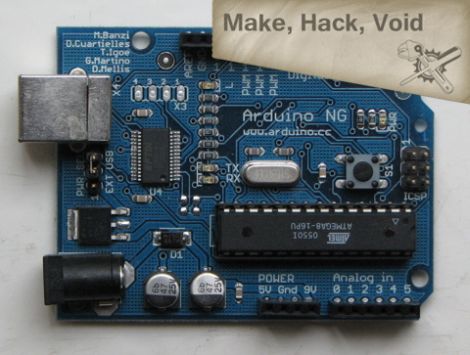
[Mathieu] just finished analyzing the numbers from a month of solar energy harvesting. You may remember that he was curious to see what kind of energy can be collected from small solar cells used indoors. He built several copies of a test platform which collected data between December 16th and January 16th.
First of all, it’s not shocking to find out that rooms with no sunlight produced negligible energy during that time. When you think about it, if they had been gathering a statistically significant amount wouldn’t that mean the lighting used in those rooms was incredibly inefficient? In other words, there’s no way you need to be making that much light.
But he did find that proper positioning in rooms that catch sunlight during the day can result in usable energy for small loads. He established that a 0.5 Watt panel harvested just a bit more than half of what a 1 Watt panel did. But perhaps the most useful discovery was that it’s quite a bit more efficient to have a charging circuit store energy in a battery rather than directly powering a fixed load.
It will take us a few more viewings to really decide what we can take away from the experiment for our own projects. But we appreciate [Mathieu’s] quest for knowledge and his decision to put this information out there so that others can learn from it.












